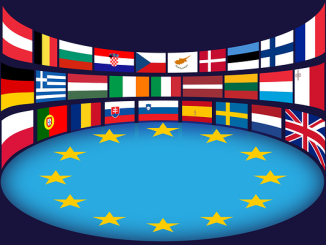
Stress affects most people. In fact, young children get stressed too, even though the reason for why they feel that way is far simpler compared to adults. Typically, it’s just related to their play time being interrupted by something like the need to study, clean up, take a bath, eat or even sleep. For adults, it’s much more complex. Or is it really? When you think about it, the stress that most adults feel boils down to one thing: money. More specifically, the lack of it.
Generally, it’s the drive to meet basic needs like food, shelter and clothing that pushes individuals to work. And if they don’t earn enough to put food on the table, pay their bills, put their children through school, pay for medical expenses, or even to simply buy something they want, stress sets in. And suddenly, all kinds of sickness — physical, mental, emotional, psychological — are not far behind.
Even with just this logic, it’s easy to see how the lack of means to provide for one’s needs can bring about all kinds of negativity in every possible way. That’s why it’s kind of surprising why it’s only now that the idea of having universal basic income — an unconditional amount given individually to the adult population to cover their primary needs — is being seriously considered as a solution for many of the world’s perennial problems including poverty, inequality, oppression, and poor health.
So far, there have been two experiments that show the impact of having guaranteed basic income on the health of recipients. The first was done in the mid-70s in a small Canadian town named Dauphin. All adults in the town who were earning less than $13,800 were granted a guaranteed income of $4,800 per year. Within the period when basic income was being given, there was a notable decline in mental health-related cases, as well as accident and injury-related hospital admissions. But when the experiment ended due to lack of funds, the apparent benefits on the residents’ health seem to have ended with it.
The second experiment was done in the 90s in North Carolina. A casino was built, and all Cherokee Indian residents in the area received around $4,000 a year from the profits earned by the casino. The results showed that the children of families who received the yearly stipend were more emotionally and psychologically healthy than the children belonging to families who didn’t receive any stipend.
Both studies suggest that having guaranteed income to cover basic needs seems to significantly affect the general health and well-being of recipients. In other words, those with the means to meet their needs are simply healthier — physically, mentally, emotionally and psychologically — than those who don’t.
And so it’s comforting to know that whatever it is they want UBI to solve or address, several countries are now in the process of working out pilot programs to test its effectiveness. Holland is currently running one, while Canada, Finland and Scotland are also planning their own.
- Bulenox: Get 45% to 91% OFF ... Use Discount Code: UNO
- Risk Our Money Not Yours | Get 50% to 90% OFF ... Use Discount Code: MMBVBKSM
Disclaimer: This page contains affiliate links. If you choose to make a purchase after clicking a link, we may receive a commission at no additional cost to you. Thank you for your support!




Can’t wait for a product economy when basic income + 20hrs of work is enough for most people. Half the productivity! Then there’s those that already begrudgingly work for about the same money as basic income who may accept 0 hrs and the same money.
Terrific.